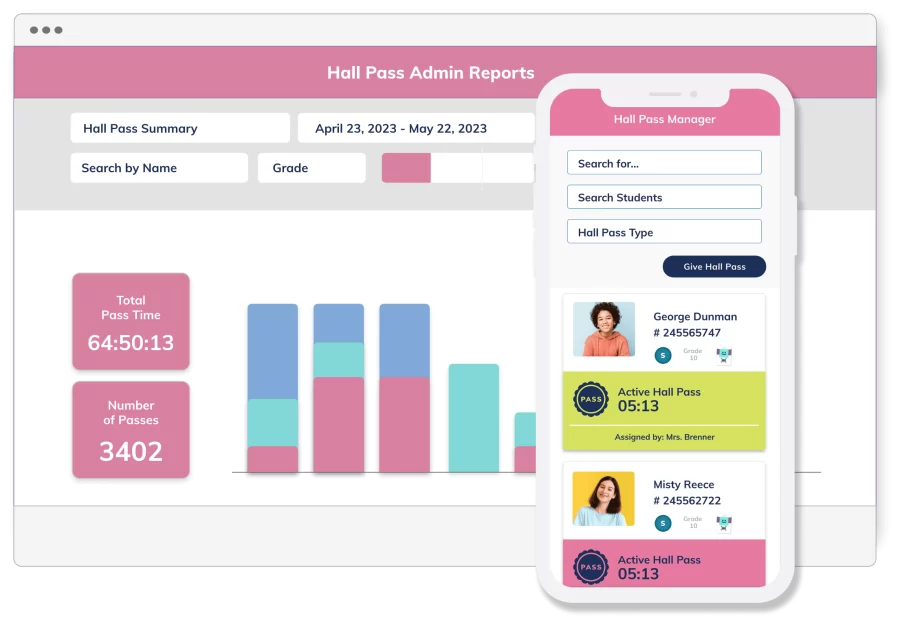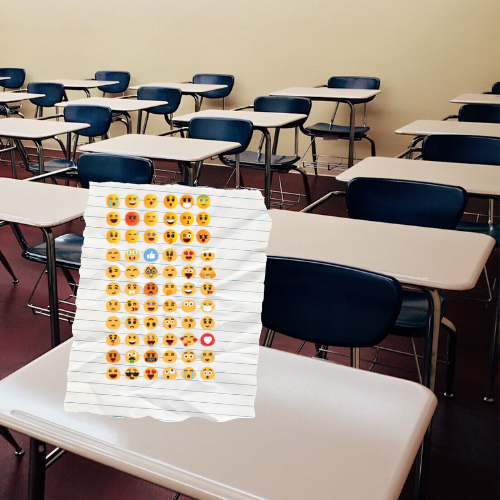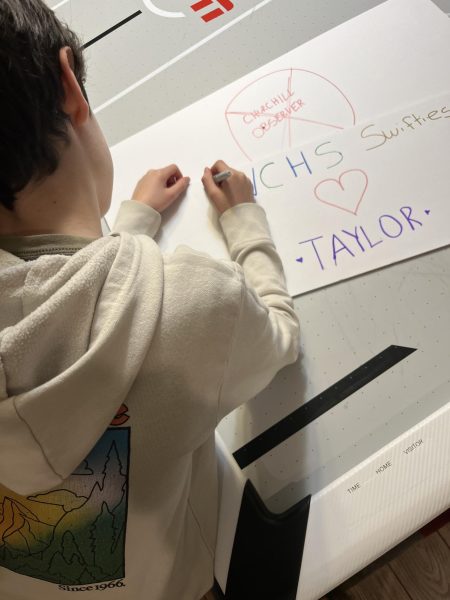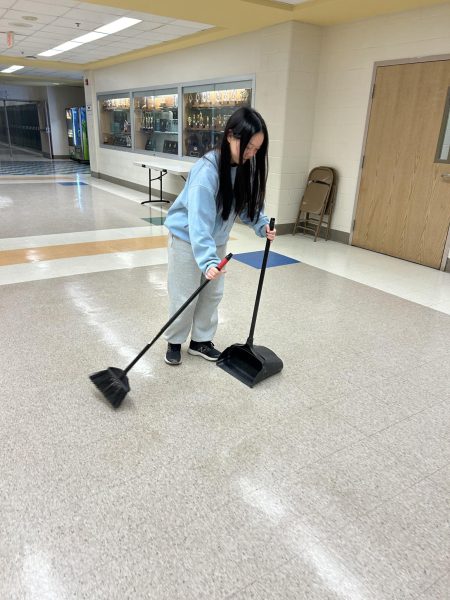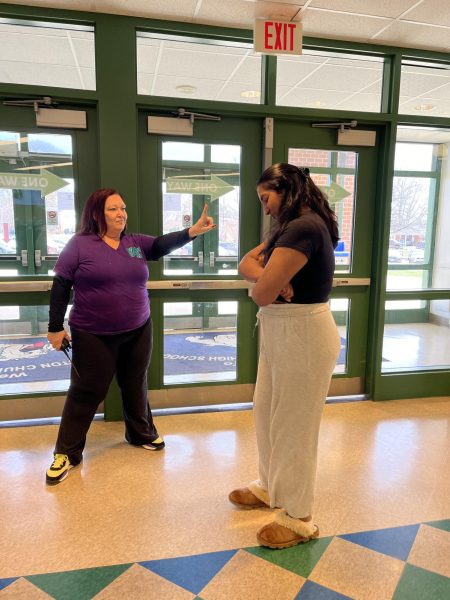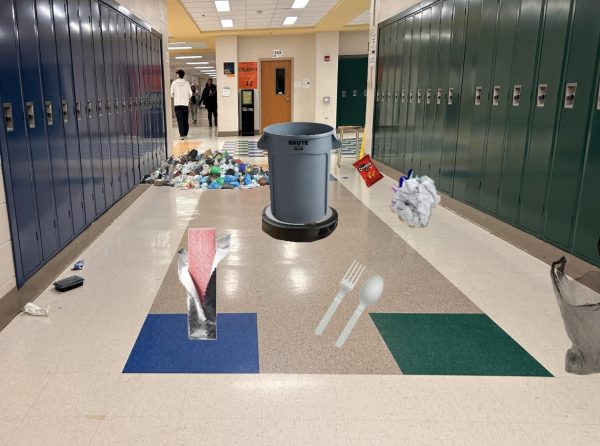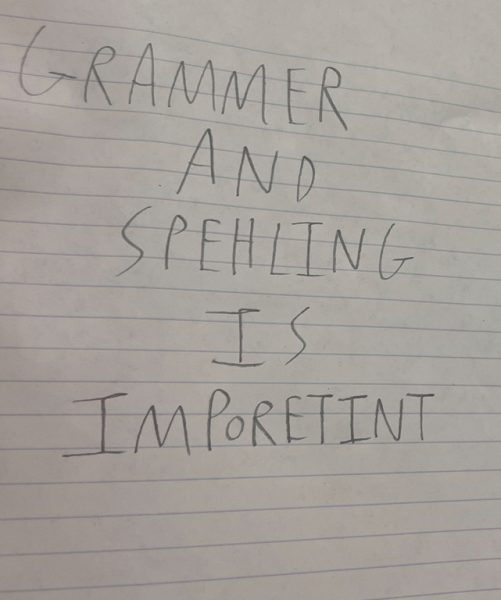Online passes put an end to bathroom breaks
WCHS will begin to administer online hall passes during fourth quarter. This is what teachers will see when a student requests a pass from them.
June 6, 2023
Survey the hallways at any given moment—between classes, during classes—and the sight will stay the same: crowds of students, furiously typing away on their phones or chatting up a storm with their friends. Although WCHS administration has previously implemented policies to reduce the abuse of hallway passes, such as differently-colored passes depending on the floor level, actual enforcement of these initiatives seems to be falling short. However, a new approach to this issue seeks to modernize hallway passes by turning to the Internet.
“We were reviewing security camera footage of the hallways, and we saw students lounging around, students walking out of the building, students staying out of classrooms for twenty-to-thirty minutes,” head of security Larry Thorn said. “It was clear that previous attempts to curb skipping and tardiness were not only difficult to enforce, but also simply ineffective.”
After reporting their findings to the WCHS administration team, it was decided that paper and laminated passes needed to be moved to an online platform, hosted through a premium feature on Synergy.
“When we discovered Synergy’s hall pass product, it was obvious that switching to them was the right move,” WCHS administrator Olivia Panto said. “As society and technology progress, it only makes sense that schools like WCHS should adapt and take advantage of these innovations instead of relying on old measures that have been proven to be futile.”
Through Synergy’s e-hall passes, data points such as the overall number of passes a student has requested, which students were out at a certain time, and students’ reasons to leave class, have been extremely useful for developing more relevant security plans and quarter reports.
“The process behind these online passes is simple: when a student wants to leave class—whether it’s to go to the bathroom, the nurse, the office, etc—they send a request to their teacher via Synergy,” Panto said. “If the teacher accepts it, they can set a timer for how long the student can be out of the classroom. For example, a bathroom pass can be ten minutes, while a trip to the nurse can be fifteen minutes. If the student is not back before the timer runs out, they are automatically marked as tardy within the system.”
Teachers and administrators also have the ability to track student movement in real-time if students have their phones on their bodies. This added factor encourages students to comply with the schoolwide rule to leave their cells behind if they have to leave the classroom.
“After testing these digital passes in a few classrooms, we can certify that there have been noticeable differences in attendance, from showing up to class to remaining in the classroom,” Thorn said. “There has been a 6% decrease in tardies and overall skipping, and one of the options Synergy offers is to create ‘no party groups,’ which prevents certain groups of students from receiving a pass at the same time, limiting noisy hallways congregations.”
Even though this new policy has been extremely useful in increasing attendance rates, there has been a plethora of ethical and privacy concerns from students and parents alike.
“To be honest, I feel very uncomfortable with the fact that my teachers and administrators have the ability to track my location or set time limits on how long I’m using the bathroom for,” WCHS junior Alex Campbell said. “I understand that there is a necessity to make our school safer, and I’ve seen firsthand how my friends have manipulated the old paper passes, but this new policy is strangely Orwellian to me.”
WCHS administration is quick to assure that this pivot to digital passes is not meant to be an invasive monitoring tool, though.
“Rest assured, we are complying with FERPA guidelines, which include keeping student data private and avoiding student tracking unless absolutely necessary,” Panto said. “In the end, our responsibility as an academic institution is to foster a positive and productive learning environment, and utilizing e-hall passes has been one of our steps to follow through with that goal.”


